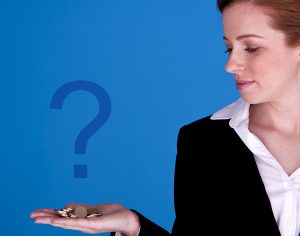Subways’ warm sandwiches are one of the main reasons for the brand’s enduring popularity but in 2012 they ended up taking centre stage due to something other than their hunger-sating abilities. The subs became the main focus in a series of court cases in which a Yorkshire franchisee argued that her business had failed because HMRC counted them as warm food. This resulted in her being charged a VAT rate of 20%, rather than the 0% she thought she should have paid.
However, neither the first-tier tribunal, the upper tribunal or the court of appeals agreed with her and instead sided with the government body. And when the franchisee reached out to the supreme court for permission to appeal the case in 2015, it rejected her claim. “It’s quite understandable that a franchisee can get this wrong,” says Carl Reader, affiliate forum chairman at the bfa, author of The Franchising Handbook and director of Selling a Franchise, the franchise-purchasing website. “The thing that jumped out in this case was that the tax office used it as trigger to look at other franchisees in the network.”
In the end, nearly 1,200 Subway franchisees ended up being affected by the erroneous VAT calculation of one single franchisee. “It cost both time and professional fees but most importantly it caused a lot of worry,” says Reader. “No business owner wants to be subject to a tax investigation because of the concern that you may have missed something.” The case also highlighted how vital it is that franchisees know and understand what taxes they’re expected to pay when they launch their businesses, something that’s easier said than done considering the complexities surrounding the British tax system.
Calculating your claim
There are a few ways in which franchisors can help alleviate any tax-related qualms franchisees may have. For starters, they can set up an in-house team or appoint a single accountancy firm dedicated to solving these issues. “That allows either the team or the firm to really get to know the ins and outs of their business and make sure that all franchisees operate consistently,” says Reader.
Franchisors can also help franchisees tackle any tax hurdles that they may have by helping them make a business plan to forecast what their profits and losses, including taxes, will be. “That’s usually a good way of getting a sense of how successful the business will be,” says Jo Nockels, senior training and technical communications manager at TaxAssist, the tax service and accountancy franchise.
Nockels also adds that tax is one of the things that’s covered both by the operations manual and the 40 days of training aspiring franchisees go through when they join TaxAssist. “Obviously, we’d hate for our franchisees to miss any deadlines and incur any fines,” she continues. “It’s such a waste of money. And not only is it damaging for everyone but for us it would be particularly embarrassing if one of our franchisees picked up some penalties.”
Speaking of training, it’s worth mentioning that some training can be deductible from a business’s taxes. However, this depends on whether or not it counts as a revenue expense. “This can be a little confusing a times,” says Reader. “Most franchisees incorrectly assume that they can claim back their initial costs straight away. However, they need to split them between capital and revenue costs.”
The difference between these two is that capital costs – which refer to the purchasing of assets like vans or equipment that you need to start the business – cannot be claimed until the business is sold. Conversely, revenue costs can be claimed against immediately.
Unfortunately for franchisees, initial training and franchising fees are counted as capital fees but secondary training counts as a revenue cost. “So if you go on any additional training after your initial induction, that would be claimable straight away,” explains Reader.
Going at it alone?
Fundamentally, franchisees are like any other SME. They usually go through similar processes when they set up their business and the tax they pay is reliant on whether it’s a limited company or not. “If they are, they must pay corporation tax and tax on the dividends they draw,” says Reader.
Technically, if a franchisee takes out a salary, then they’d have to pay income tax too. “But normally they don’t draw very much and therefore it doesn’t trigger much tax,” says Nockels. “Instead franchisees tend to top up their income with dividends because the tax rate on dividends is lower than it is on a salary.”
Essentially, a limited company is one out of several ways franchisees can structure their companies. The others are sole traders, partnerships and limited partnerships. Establishing a business as a limited company means that it exists as a separate entity from the franchisee. “It basically puts up a wall between the person and the business,” says Nockels. For a sole trader on the other hand, their personal and the company’s finances are intimately tied together. “That means you can make use of the company’s losses personally,” says Nockles. A partnership is basically the same thing but with two or more franchisees instead of one, while a limited liability partnership is a mix between the structures of a partnership and a limited company.
Given the personal tax advantage it offers, she explains that most of TaxAssist’s franchisees usually start out as sole traders. “But there is nothing stopping you from swapping at a later date once the company is more profitable,” says Nockels. “You don’t have to choose one structure and stick with it.”
But corporation and income tax aren’t the only factors that franchisees need to take into account. It’s important not to forget the tax that caused Subway so much grief: VAT. “There is a bit of peculiarity around VAT and it all comes down to the Trading Schemes Act of 1996, which is aimed at preventing what you and I know as pyramid schemes,” says Reader. “This legislation unfortunately catches franchises out too, which is why it’s usually a part of franchise agreements that each party must be VAT registered.” This law is designed to prevent pyramid scheme scams by imposing strict regulations on multi-tier companies like franchises when it comes to things like advertising and contracts, as well as by forcing them to register for VAT. Failure to pay the right amount of VAT may result in franchisees having to pay more tax and additional fees.
At the end of the day, franchisees and franchisors are in business together and what happens to one will affect the other. Given this intimate link, Reader urges franchisors to provide all the help they can if their franchisees are still struggling to understand the taxes they should pay and which costs they can claim back from HMRC. “Any franchisor is only successful if they’ve got successful franchisees,” he concludes. “If they get stung by unexpected tax bills then the franchisee could end up losing their businesses, which only leads to the franchisor getting a bad reputation.”

Eric Johansson
As web editor and resident Viking, Johansson ensures Elite Franchise is filled with engaging and eclectic entrepreneurial stories. While one of our most prolific franchise writers, he has sharpened his editorial teeth by writing about entertainment and fitness. Follow him on Twitter at @EricJohanssonLJ to catch up with his stream of consciousness.

Eric Johansson
As web editor and resident Viking, Johansson ensures Elite Franchise is filled with engaging and eclectic entrepreneurial stories. While one of our most prolific franchise writers, he has sharpened his editorial teeth by writing about entertainment and fitness. Follow him on Twitter at @EricJohanssonLJ to catch up with his stream of consciousness.
































